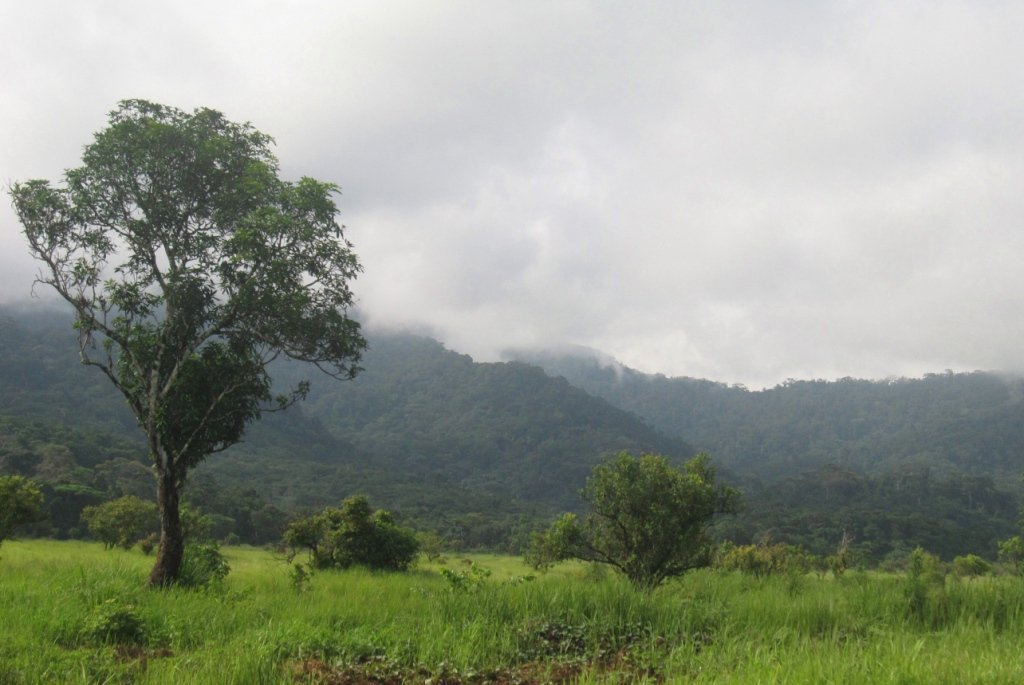MONROVIA, June 3 – The Saharaa has been reliably informed by top-placed sources within the Unity Party-led government that the expected arrival of 285 pieces of earth-moving equipment is part of a signature fee agreed upon by South African businessman Robert Gumede of the Guma Group for the exploration of Wologizi Mountain.
Wologizi Mountain, located in the Lofa and Gbarpolu Counties of Liberia, is a significant geological formation known for its untapped mineral wealth. Discovered by geologists in 1905, the mountain is renowned for its potential deposits of valuable minerals, including iron ore, making it a strategic asset for Liberia’s mining industry.
The exact worth of Wologizi Mountain remains unquantified due to its untapped status. However, the presence of vast mineral deposits suggests a high economic value, potentially amounting to billions of dollars. Previous geological surveys and exploratory studies have hinted at the mountain’s capacity to significantly boost Liberia’s revenue if properly harnessed.
Wologizi Mountain’s importance lies in its potential to drive economic growth and development in Liberia. The mountain’s mineral deposits, particularly iron ore, could attract substantial foreign investment, create jobs, and generate significant revenue for the government. This economic boost is crucial for Liberia, a country striving to rebuild and develop its infrastructure and public services post-conflict.
Why is it Always Considered in Resource Swap Conversations?
Wologizi Mountain is frequently discussed in resource swap negotiations due to its untapped mineral wealth. Resource swap deals involve exchanging natural resources for infrastructure development, financial investments, or other benefits. Given the mountain’s potential, it is an attractive asset for such deals, promising significant returns for both the Liberian government and foreign investors.
What Does it Take to Grant the Mountain in Concession?
- Granting Wologizi Mountain in concession involves several critical steps to ensure transparency, legality, and national benefit:
- Legal Framework: Adherence to the Public Procurement and Concessions Act (PPCA) of Liberia is essential. This act mandates that all major government procurement activities undergo a transparent and competitive bidding process.
- Legislative Oversight: Substantial government expenditures and concession agreements require approval from the House and Senate to ensure legislative oversight and accountability.
- Due Diligence: Conducting thorough due diligence on potential investors is crucial. This includes assessing their financial capability, past business practices, and compliance with international standards.
- Environmental and Social Impact Assessments: Evaluating the environmental and social impacts of mining activities is necessary to mitigate negative effects on local communities and ecosystems.
- Community Involvement: Engaging local communities in the decision-making process ensures that their interests and rights are protected, fostering a more inclusive and sustainable approach to resource management.
Controversial Negotiations and Current Status
The recent announcement of a deal involving Robert Gumede and the Guma Group has sparked controversy due to its informal structuring and lack of a legally binding contract. Minister of State Without Portfolio, Mrs. Mamaka Bility, disclosed that each of Liberia’s 15 counties would receive 19 pieces of the equipment, including Lofa, where Wologizi is situated. However, the government later retracted this statement, stating that no deal had been finalized.
The Saharaa has learned that Madam Bility, along with Public Works Minister Roland Lafayette Giddings and Minister of State Sylvester M. Grigsby, traveled to South Africa to negotiate the deal. Despite their efforts, the absence of proper legal frameworks and adherence to PPCA guidelines remains a significant issue.
The involvement of Robert Gumede, a businessman with a controversial reputation, has further fueled skepticism. Pro-government loyalist Martin K.N. Kollie raised concerns about the government’s due diligence in engaging with Gumede, highlighting the need for transparency and adherence to procurement regulations.
Kollie questioned the total cost of the project, including shipping charges, and the maintenance and operational expenses of the machinery. He emphasized the necessity of conducting a comprehensive need-based study and ensuring that Liberian operators and engineers are involved and adequately compensated.

